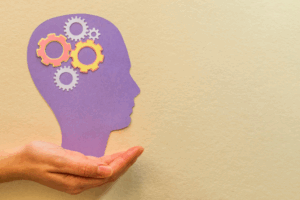Why Diet and Mental Health Are Closely Connected
Our emotional well-being is shaped by many factors — and eating habits are one of them. While we aren’t dietitians, research shows that diet and mental health are deeply connected. Skipping meals, processed foods, or irregular eating can impact our mood and focus. These patterns often contribute to low energy, irritability, and anxiety. Understanding this connection is crucial for emotional resilience.
The Vicious Cycle of Poor Diet and Mental Health
When we don’t eat well, we may feel tired, foggy, or emotionally drained. These feelings can lead to emotional eating or cravings, creating a harmful cycle. Feeling low leads to poor food choices, which can worsen our mood. Over time, this cycle increases stress and emotional reactivity. It’s a loop that’s easy to fall into — but possible to break.
Blood Sugar Swings and Emotional Instability
Inconsistent meals often lead to blood sugar crashes that affect our emotions. Feeling shaky, moody, or weak can mimic anxiety or worsen depression. For those with existing mental health challenges, this can feel overwhelming. Stable eating patterns can help reduce emotional swings. Even small changes can support more emotional balance.
How Balanced Eating Supports Focus and Emotional Regulation
People who eat more consistently often report better focus and less irritability. Balanced eating habits can make us feel calmer, more grounded, and mentally sharp. It’s not about strict diets — it’s about regularity and self-awareness. Mental health professionals often see mood improve when eating becomes more stable. This is one form of daily emotional care.
The Emotional Impact of Skipping Meals
Long gaps between meals can lead to fatigue and mood dips. Many clients say they feel more anxious or sad when they haven’t eaten all day. For those with depression, low energy can make everything feel harder. Skipping meals may seem harmless but can deepen emotional lows. Regular nourishment supports your emotional strength.
Conclusion: Mindful Eating as Mental Health Self-Care
We don’t tell you what to eat — but we highlight how you eat. The link between diet and mental health is worth noticing. Consistent eating can support emotional stability, clarity, and resilience. Your brain and body need steady care to feel their best. Reflecting on eating patterns is one step toward feeling more in control.




